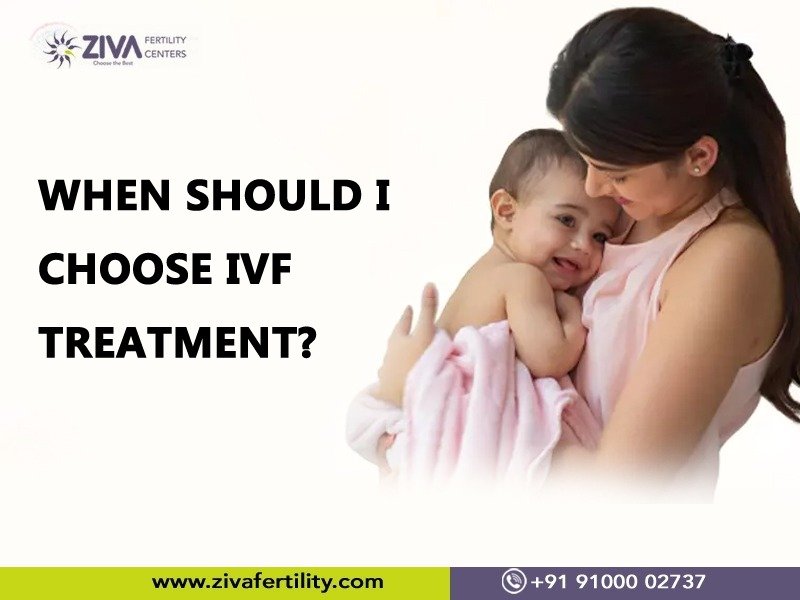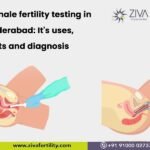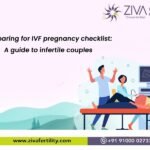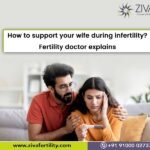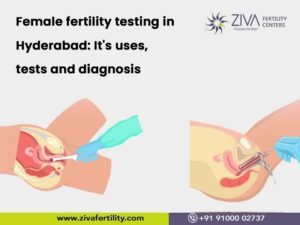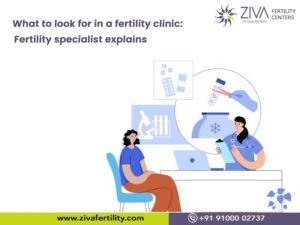When couples realize that they are unable to get pregnant, it can be pretty devastating. But soon, hope arises, as there are many assisted reproductive technologies. There are more couples globally who are seeking medical help to conceive. Out of all the ART, ART’s IVF has a track record of being the most versatile, successful method that caters to a wide range of infertility issues. One can use own or donor eggs/sperm, and the fertilization happens outside the womb inside a lab. So this eliminates lots of problems involved with natural conception. However, one should get thoroughly evaluated by a ZIVA Fertility specialist to see if they are suited for an IVF.
Process of an IVF in a nutshell
In vitro fertilization, shortly known as IVF, women are given ovarian stimulation hormonal injections. These external injections help the ovaries to release more eggs in contrast to the single egg that is released every month naturally. Healthy eggs are extracted from the ovaries, which are fertilized inside a petri dish in a lab by using the sperm of the male partner or a donor sperm. They are left in the petri dish for fertilization to occur, which creates healthy embryos. Once healthy embryos have been made, one or more are inserted back into the woman’s uterus. One or more of the embryos implant themselves, after which pregnancy follows a natural cycle. As one can quickly see with IVF, there is a chance of multiple embryos attaching themselves to the uterus, resulting in more than one fetus.
When should I choose IVF treatment?
If a couple is experiencing infertility, expert ZIVA Fertility doctors do not suggest IVF on the first go. They try methods such as ovulation induction, medication, intrauterine insemination (IUI), or surgery. But in the following cases, one should opt for an IVF:
Other ARTs are not working: The male partner has severe infertility: In such cases, a donor sperm could be used. But if the male partner’s sperm is of good quality, then IVF with ICSI is done where a sperm is directly injected into the egg in the lab. The before and after steps are the same as IVF.
Age: When a woman is over 40, in her late 40s, the egg quality starts declining. So, as age progresses, it becomes difficult for weak eggs to naturally conceive. Also, the number of eggs reduces with age.
Male-factor infertility: The treatment is also helpful for couples who are experiencing male-factor infertility. Intracytoplasmic sperm injection (ICSI) is the most preferred method for male factor infertility, in which the sperm is injected directly into the female’s egg.
Couples can use donated eggs: Sometimes, couples have to go for a donor egg or donor sperm. Severe infertility is one of the reasons, but apart from that, there could be single people or homosexuals who want to have a baby. In such cases, the usage of donor eggs or sperm is required. This makes usage of IVF necessary to have a child. Some couples want to maintain a gap between their first and second child. So, by the time they plan for a second child, their age might cross 40. So, they have to go for an IVF for the second child.
Women who wish to freeze eggs: With the workforce landscape changing, more and more women are waiting to have a flourishing career before having a child. So they have the option to freeze their eggs. When they are finally ready to have a baby, they can use the frozen eggs to get pregnant via IVF. Egg freezing is also common if women have to undergo cancer treatments or surgeries.
Fallopian tube damage or blockage: The fallopian tubes are the transport mechanism through which the eggs can move from the ovaries to the uterus and the embryo to travel back to the uterus for implantation. For a successful pregnancy, at least one of the tubes must be in working condition. However, if both the tubes are damaged or blocked, that makes it hard for an egg to be fertilized or for an embryo to travel to the uterus. However, in IVF treatment, since the fertilization happens outside, the woman’s uterus and the embryo are manually placed into the uterus. Women with fallopian tube issues can rely on IVF for a successful pregnancy.
Ovulation disorders: Women with disorders such as PCOS have issues with regular ovulation. If ovulation does not occur at the stipulated time, then there is no egg for the sperm to fertilize. IVF overcomes this challenge because women are given ovulation-stimulating hormones through which the ovaries release more than one egg. These eggs are manually fertilized in the lab by the male partner sperm or donor sperm.
Endometriosis is a condition in which extra tissue grows around the ovaries, uterus, and fallopian tubes. Depending on the area of the tissue growth, various obstacles can occur during pregnancy. As explained before, women with endometriosis can look for IVF as an alternative to pregnancy because IVF eliminates mini pathways that are required for natural pregnancy.
Uterine fibroids: Non-cancerous uterine fibroids prevent the fertilized egg from attaching to the lining of the uterus. Women above the age of 30 usually have non-cancerous fibroids.
Unexplained infertility: Unexplained infertility can occur in both the male and female partners. All the tests will show average results. However, the desired outcome is not fulfilled. In such cases, since egg and sperm production are normal, IVF comes to the rescue. In fact, in most young couples nowadays, unexplained infertility is the most common cause of infertility.
Family history of genetic disorders: Preimplantation genetic testing is similar to IVF and is recommended if you or your partner is at risk of passing on a genetic disorder to your child. Following successful fertilization in the lab, the embryos are checked for some genetic issues. This is not a foolproof method of catching all genetic disorders, but it is still a better option for couples with this risk.
Risky pregnancies: Women with no working uterus or for whom pregnancy poses a high health risk might choose IVF. In such cases, the embryos are placed inside the uterus of a gestational carrier.
We at ZIVA fertility clinics thoroughly analyze the couple’s fertility before suggesting IVF. We are with you from the initial consultation until a satisfactory outcome is delivered. So be open with us and share your queries and concerns with us. We guarantee our best efforts to make your IVF journey as smooth and comfortable as possible. For more information, please visit our website https://zivafertility.com/ or contact us at +91-9100002737 or +91-9347406900.

